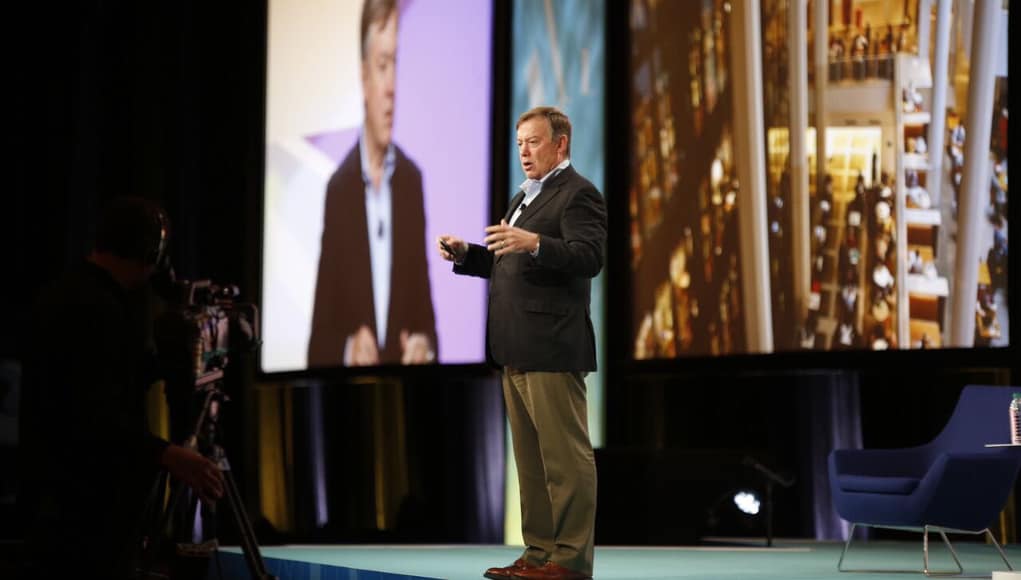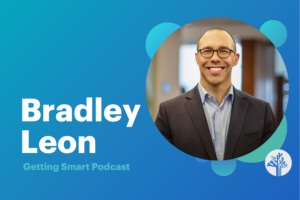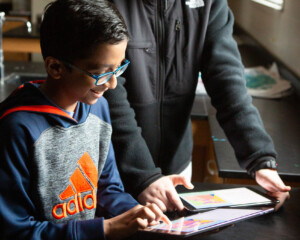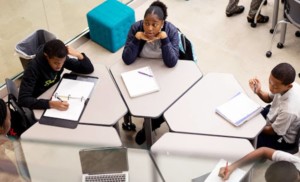Michael Crow On What’s Next In HigherEd and the EdTech Tools It Will Take

Great to see four thousand of you at #ASUGSVsummit (@asugsvsummit) this week. In its eighth year, the event has become the biggest and best conference on innovations in learning from early childhood to job training.
It was a great conference with amazing keynoters and plenty of sunshine for those of us suffering from too much rain lately. Joe Lonsdale (@JTLonsdale and @8VC__) talked about big data and artificial intelligence. Adam Gazzaley, UCSF, provided an update on cognitive science. Michael Moe’s annual keynote is like drinking from the fire hose of exponential technology.
Perhaps most substantive was Michael Crow’s keynote on the future of The Future of HigherEd (@michaelcrow and @ASU, here’s the video and the slides).
President Crow opened with this quote from Alan Wilson: “We live at the center of a knowledge explosion….Knowledge is now the key capital resource….Knowledge is now also the key social resource: it empowers people in a knowledge-based economy; it is what underpins any kind of critical thinking. It is civilizing. In a phrase, what counts is knowledge power.”
“We’re wounding ourselves every day,” said Crow “By acting if some can learn and some can’t.” He quoted McGraw prize winner Sandy Shugart President of Valencia College (@valenciacollege): “There is no reason any human can’t learn anything.” He encouraged the educators, entrepreneurs and investors to quit classifying people based on their perceived ability.
To illustrate that we are “infants in terms what we know, but unbelievable in what we can know,” Crow took the audience on a trippy intergalactic journey (at minute five of the video) using Hubble telescope data that would not have been possible just months ago. Crow said, “The purpose is to demonstrate what can be done instantaneously by students” today at a place like ASU.
Historically, HigherEd has spent massive amounts on attracting new students (lower right box below) but little money on new offerings to new learners (breakthrough learning, upper right).
Crow described the evolution of HigherEd (below) and the emergence of a new category he calls a National Service University. Crow puts ASU and Purdue (with its recent acquisition of Kaplan University) in this new category. He sees a sixth category emerging, the global research university. “MIT is furthest along with it’s teaching platforms and research agenda,” added Crow.
Putting knowledge at the core, Crow described five realms of learning, think of them as developmental phases that HigherEd is going through. Most of HigherEd is migrating from Realm 1 to Realm 2 with experiments in Realm 3 (think MOOCs).
Here’s a recap of the five developmental dimensions Crow sees for HigherEd and some of the EdTech developments that will enable the growth:
Realm 1: Full immersion, on campus, tech-enhanced (ideas and means of the university)
- Math and science mastery for all
Realm 2: Digital immersions, EdTech enabled
- Need integrated human tutor interface, real-time assessment
Realm 3: Digital immersion, massively open, tech-enhanced
- Need tech that derives value from scale
- Content and delivery for any life stage, multi-organization pathway mapping
Realm 4: Education through exploration and game-based learning
- Need virtual augmented reality for learning
- Direct human cognition linkages
- Intelligent tutoring through verbal query
- Residence hall with built in maker labs
Realm 5: Infinitely scalable learning
- Need: infinitely scalable teaching
- Seamless integration of individualized learning across life stages
- Lifelong intelligent tutoring
Crow recapped some of the needed developments, saying “It’s not a comprehensive list, but it is a list of tech challenges.” It also represents “unbelievable market opportunities” with potential for something like 5,000 companies that could emerge.
Crow is proud of the progress they’ve made at ASU with three times the number of grads in 2003 with five times the diversity. The ASU population now represents the regional demographics. With a perpetual focus on innovation, ASU conducts more sponsored research than most selective R1 universities and has emerged as the prototype for a National Service University.
On Realm 5, Crow admits we don’t know exactly how “Infinitely Scalable Learning” will work. We do know that everyone needs to “learn how to learn, how to solve problems and how to adapt.”
Feature Photo Credit Robert Behnke, EdPlus at Arizona State University













0 Comments
Leave a Comment
Your email address will not be published. All fields are required.